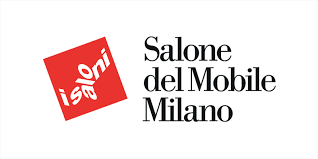
Reuse and recycling, regeneration and sustainability are at the heart of the next edition of the trade fair, which will take place April 18-23, 2023, and will see the return of Euroluce.
The last edition of the Salone del Mobile.Milano was held during an unprecedented climate situation, with temperatures rising above 35°C, tangible proof of ongoing change, and against a very complex political and economic backdrop. This is why issues such as regeneration, reuse, circularity, planet-centricity, and energy saving have been the focus of attention for the event and for the design industry as a whole. The Salone has shown its concrete commitment to finding solutions and enacting virtuous practices. Testament to this are its membership of the United Nations Global Compact, its circulation of Green Guidelines for planning and setting up trade fair installations, and its work towards obtaining ISO 20121 certification for sustainable events management.
Environmental, financial and social responsibility will be a top priority at the 2023 edition of the Salone del Mobile, too, providing an example of ESG practices that facilities managers can follow in their spaces, particularly in event spaces. All the activities are being organized in such a way that they are geared to the efficient use of resources, cutting waste and environmental impact, and protecting the human rights, health and safety of those taking part in the event and of workers involved in its organization, besides guaranteeing benefits for all the participating companies and the regional communities.
With all this in mind, the Salone has enacted procedures to identify suppliers of recycled and recyclable or reusable materials for building the common parts, and will regenerate the resources that have been consumed and absorb the waste produced, choose institutional partners whose strategies are centered around genuine concern for people and the planet.
The Salone is also conscious that business sustainability initiatives are much more effective and far-reaching when planned with the active participation of all their stakeholders, which is why it has expanded the green guidelines issued last year to the exhibiting companies, in a bid to provide them with the greatest possible support when it comes to designing, planning and carrying out their activities at the fair.
Aside from matters of certification and apart from moments of crisis such as those we’re experiencing right now, caused by spiraling energy costs and the lack of raw materials in the wood-furnishing supply chain, it is our firm belief that whatever the Salone del Mobile does must be guided by a profound sense of ethical duty. We need a change of mental paradigm, sharing knowledge and skills with all the actors within the design and events industry, coming up with innovative solutions, conscious that the things we do today will determine the future of the upcoming generations. We are all changemakers, protagonists of this transformation. These days, companies are in a position to play a guiding role in this process, collaborating with governments, regulatory bodies, investors, partners and suppliers. The Salone is right there with them, ready to provide whatever support is called for in order to make all this happen.
Maria Porro, president of the Salone del Mobile.Milano
The Salone has shared the following recommendations with its own community: as regards the installations, companies are recommended to come up with circular solutions for the structure and materials for the exhibition spaces, cutting waste and optimizing energy, transport and storage; cutting down on packaging or employing reused or reusable packaging; selecting materials on the basis of source distance, with logistical sustainability in mind, including reused or reusable physical communication supports.
With regard to stand building materials, recycled wood and cardboard products are preferred, or ones from sustainably managed forests with FSC or PEFC certification; as are curbing the use of non-reusable materials often destined for disposal; opting for plastic-free or recycled plastic materials; reusable pallets that have been repaired or sourced through exchange schemes; opting for water-based paint, ecolabel products and ecological detergents free of toxic components.
With regard to social safety and sustainability, the companies have been invited to adopt measures, products and equipment that guarantee safe installation procedures for the staff involved and that ensure accessibility, usability and fruition by vulnerable users and those with disabilities.
Exhibitors have also been asked to prioritize suppliers having implemented sustainable management service systems conforming to ISO 20121 legislation with demonstrable commitment to social responsibility; and to ask suppliers to provide the characteristics and traceability of their products; while also taking account of the pertinent Minimum Environmental Criteria (CAM) published by the Italian Ministry for Ecological Transition, as regards purchasing materials from suppliers.
These are not compulsory guidelines, rather a tool to help define a positive and inspirational mode of conduct, around which the business community will pull together and which can be utilized to accelerate change.
Maria Porro
